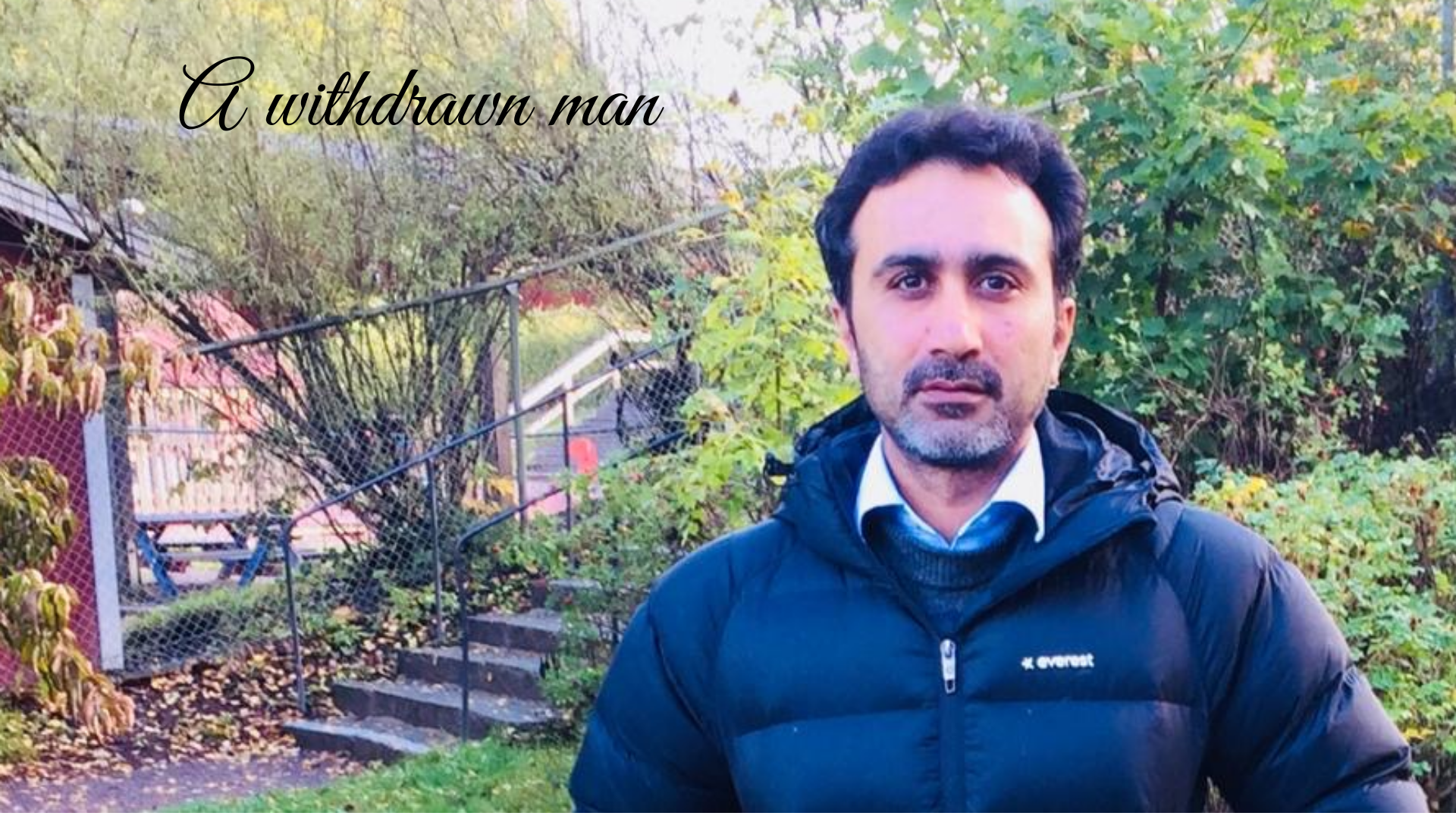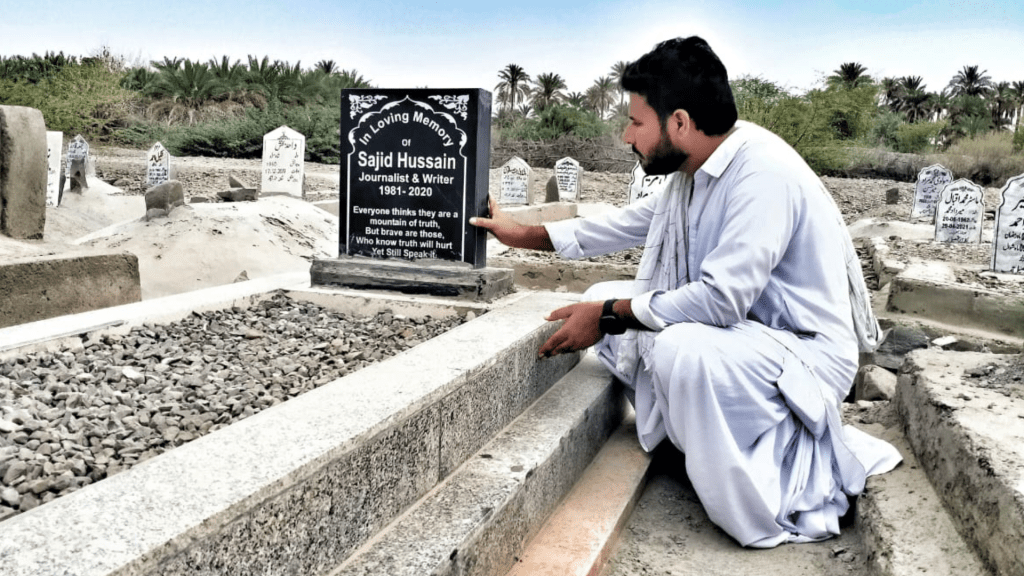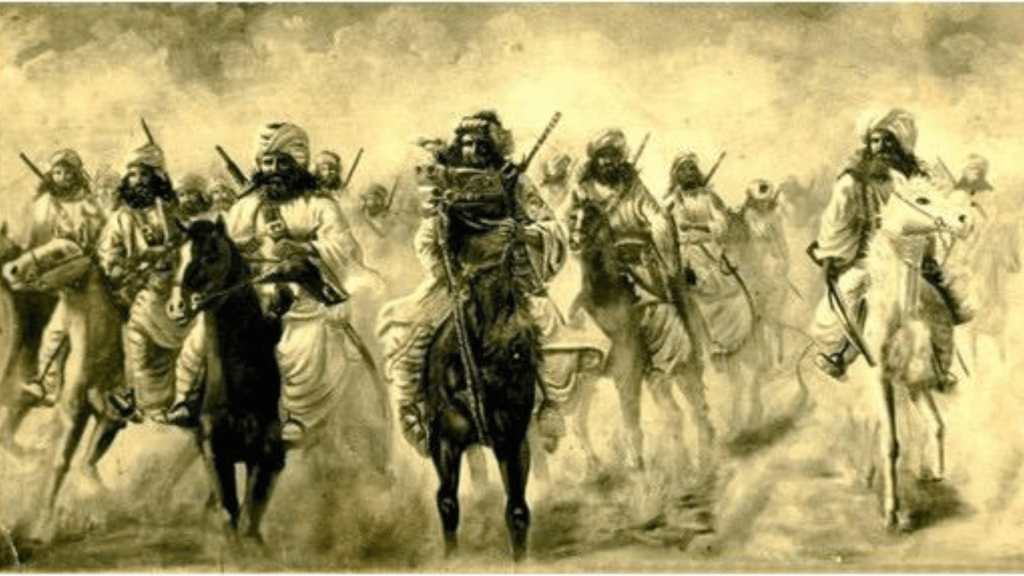I first met Sajid Hussain in my hometown of Tump, a small insignificant place in the middle of nowhere in Balochistan. I can’t remember the year, but it was sometime in the late 90s or early 2000s. His cousin Asif Baloch, who was a student political activist, proudly introduced him: “Meet Sajid. He is a keen reader of English literature.” Sajid being the introvert in the room felt visibly uneasy but said nothing in his defense.
After a few years, I moved to Karachi and met Sajid again. He was a student at the Karachi University and a frequent presence in the Baloch political and literary circles. He was also a member of the Baloch Students Organization. But Sajid was never your typical activist. He questioned the strategies of the nationalist parties at a time when internal dissent was considered equal to a lack of commitment and those favouring a more sensible approach were thought of as cowards.
He was not even afraid of standing up to his uncle and top Baloch leader Ghulam Mohammad. They rarely agreed on politics. Sajid was allergic to glorifying and mythologizing the national struggle and its leadership. He was also dubious about dogmatization of ideologies. At that time, no one understood why he was ruining the show for everyone and why he asked uncomfortable questions that created unease among the zealous bunch.
Sajid’s inquiries were based on logic and reason. He would always be the one to remain unmoved after a fellow student leader delivered an emotionally charged speech. This would cause doubt within the rest who were unquestioningly convinced by the rhetoric.
Sajid also despised the political and moral correctness, resorting to which was a common practice among the Baloch. He was not the kind of a man to say things just to please the crowd or pretended to be sure about something more than he was. He admitted his shortcomings when faced with something that was out of his area of expertise.
For a Westerner, this might not seem a virtue but it’s a rare quality in the semi- tribal Baloch society, where we pretend to know everything. We must have an opinion on all matters. I remember a few friends once jokingly asked a veteran Baloch activist about what was China thinking at the time. He delivered a four-hour long speech on the hidden aspects of the Chinese foreign policy which I am sure even Mao Zedong never thought of.
This is how things usually work in our society. This is what’s considered normal. Sajid was obviously a misfit.
In Karachi, when Sajid was in his early 20s, most of his friends were octogenarians. He enjoyed the company of veteran politicians, intellectuals and literary figures. When he finished his morning classes, one of his favorite spots was Café Jahan, “a relic from a bygone era in Saddar which is a refuge for people with nostalgia.” One friend after another would join him. He would be meeting this poet or that short story writer or that old communist.
Due to a soft spot in his heart for the veterans and a lust for wisdom, close friends nicknamed him Kamashok, the improvised Balochi word meaning ‘almost old man’. He hated that word but it described him well as he was mature beyond his years.
When we would sip countless cups of tea and smoke our lungs out, Sajid would write Balochi literary reviews for some of the most prominent dailies in Karachi. He had a keen eye for the details. He had a fantastic grasp on local and international literature. The first time I heard about James Joyce and how he had influenced English literature was from Sajid.
Much changed after a few years. Because of Balochistan’s political situation, many of us left the country to seek refuge in other parts of the world. In 2009, his uncle Ghulam Mohammed was killed by the army. Sajid was working for one of the most circulated newspapers in Pakistan, The News International, at the time. Friends advised him to leave the country but he refused because he loved his job and life with his family. A few years later, his cousin Asif, the one who had introduced me to Sajid, was also killed.
Sajid would sometimes remain out of the political and literary scene for months. A humble man, he would reply to your messages, meet and help you but would not engage other than everyday talk. But he would be back, the same man with the same love for literature and other random things.
In 2012, he was working anonymously with The Reuters on a story on Balochistan. His cover was blown and left with no other choice he finally decided to leave. He fled to Oman, then Uganda and then to the United Arab Emirates, where I was living. It was obvious we would spend time together, both in exile for different reasons.
Sajid was still not convinced that he belonged to any -ism or political cult. He was always suspicious of -isms and dogmas that called for sacrifices for causes greater than ordinary folks could comprehend. But yet there he was, in exile, a castaway from everything he loved. His greatest regret was missing out to see his then two and a half years old daughter Taheer growing up.
In the UAE, we talked about films, TV series, books and almost anything under the sun. One of our favorite books was Catch-22 by Joseph Heller. We shared a deep love for John Yossarian, the bombardier in the novel written in the backdrop of WWII. Yossarian’s commanding officer, a warmongering psychopath, keeps raising his missions, prolonging his duty time and hence increasing chances of him being killed. But our favourite character prefers remaining idle over taking part in the war and dying a hero’s death.
Sajid and I particularly love his dialogue: “The enemy is anybody who’s going to get you killed, no matter which side he is on.” Sajid to me is the kind of guy who falls in the anti-hero category like Yossarian. He can relate to a cause deeply but prefers not being killed because of it.
Now that he is not only in exile but also missing, I’m beginning to wonder whether the Sajids and John Yossarians of our world will always be the collateral damage of the wars they did not start or wished to fight in. I imagine wherever Sajid is, he must be having a good laugh at the irony of his situation. The fate he has been avoiding for almost a decade has caught up with him. We loved talking about such stories, real or fictional, but he has now himself become the story.
Sameer Mehrab is a writer and co-founder of Balochistan Times. He often depicts Balochistan's socio-political dilemmas in his fiction and poetry. He is based in Canada.



